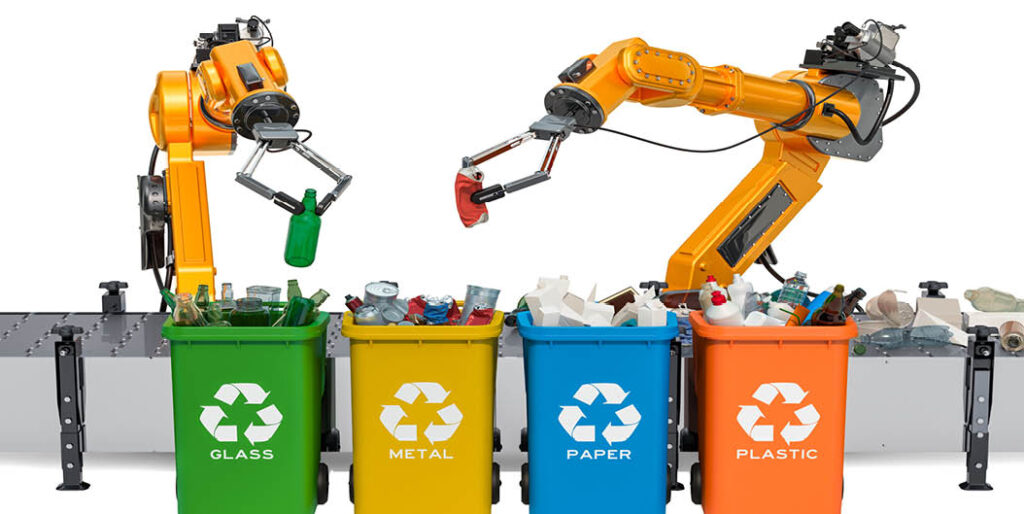As the world grapples with climate change, pollution, and resource depletion, sustainable technology has emerged as a critical solution for a greener future. With advancements in renewable energy, eco-friendly manufacturing, and innovative waste reduction methods, sustainable technology is transforming industries and paving the way for a more environmentally conscious world. Businesses and individuals alike are recognizing the need for adopting green technologies that balance economic growth with ecological responsibility.
Renewable Energy Solutions
One of the most impactful aspects of sustainable technology is the rise of renewable energy solutions. Solar power, wind energy, hydroelectricity, and geothermal energy are leading alternatives to fossil fuels, significantly reducing carbon emissions. These clean energy sources provide sustainable and cost-effective power, making them a viable option for both households and large-scale industries.
Recent advancements in solar panel efficiency and battery storage technology have further enhanced the adoption of renewable energy. The integration of smart grids and decentralized energy systems allows better management of electricity distribution, reducing energy waste and enhancing sustainability.
Green Manufacturing and Eco-Friendly Materials
Sustainable technology is also making waves in the manufacturing sector. Companies are increasingly adopting green manufacturing practices that minimize waste, lower carbon footprints, and use eco-friendly materials. From biodegradable packaging to sustainable textiles, industries are shifting towards materials that are not only durable but also environmentally friendly.
3D printing technology is another revolutionary innovation in sustainable manufacturing. By allowing precise material usage and reducing excess waste, 3D printing is making production more efficient and sustainable. Many companies are also incorporating circular economy principles, ensuring that materials are reused, repurposed, or recycled rather than discarded.
Smart Cities and Sustainable Urban Development
With rapid urbanization, sustainable technology is playing a crucial role in building smart cities. Innovations such as energy-efficient buildings, intelligent transportation systems, and green infrastructure are helping reduce environmental impact while improving the quality of life for residents.
Smart city technologies leverage the Internet of Things (IoT) to optimize energy usage, manage traffic congestion, and improve waste management. Vertical gardens, rooftop solar panels, and rainwater harvesting systems are becoming standard features in modern urban planning, showcasing how sustainable technology is shaping the cities of the future.
Electric Vehicles and Green Transportation
The transportation sector is one of the biggest contributors to global emissions. However, sustainable technology is revolutionizing this industry through the widespread adoption of electric vehicles (EVs), hydrogen fuel cells, and hybrid engines. EVs are rapidly gaining popularity due to advancements in battery efficiency, increased range, and government incentives promoting clean transportation.
Public transportation is also undergoing a green transformation. Many cities are investing in electric buses, high-speed rail systems, and bike-sharing programs to reduce reliance on fossil fuels. As infrastructure for EV charging stations expands, more consumers are making the shift towards cleaner transportation alternatives.
Sustainable Agriculture and Food Technology
Agriculture is another sector where sustainable technology is making a difference. Precision farming, vertical agriculture, and hydroponic systems are enabling more efficient food production while conserving water and reducing land use. Smart irrigation systems powered by AI and IoT help farmers optimize water usage, ensuring crops receive the necessary nutrients without excessive waste.
Lab-grown meat and plant-based alternatives are also gaining traction, reducing the environmental impact associated with traditional livestock farming. These innovations not only help lower greenhouse gas emissions but also contribute to sustainable food security for a growing global population.
Waste Management and Recycling Innovations

Proper waste management is essential for a sustainable future. Innovative recycling methods, waste-to-energy solutions, and biodegradable alternatives are reducing the burden of waste on the environment. Companies are developing advanced sorting technologies using AI and robotics to improve recycling efficiency and ensure valuable materials are recovered.
Upcycling and zero-waste initiatives are also becoming more popular, encouraging individuals and businesses to repurpose materials creatively. From compostable packaging to circular fashion, sustainable technology is reshaping how society manages waste and promotes a circular economy.
The Role of AI and Big Data in Sustainability
Artificial intelligence (AI) and big data are playing an essential role in advancing sustainable technology. AI-powered analytics help organizations track carbon footprints, optimize energy usage, and predict environmental trends. Machine learning algorithms can enhance climate modeling, leading to better decision-making in resource management and environmental conservation.
Big data is also improving supply chain transparency, allowing consumers to make informed choices about sustainable products. Companies can leverage these technologies to enhance efficiency, minimize waste, and develop innovative solutions for a greener future.
Challenges and Future Prospects of Sustainable Technology
Despite its numerous benefits, sustainable technology faces challenges such as high initial costs, resistance to change, and the need for large-scale infrastructure. Governments, businesses, and consumers must work together to overcome these hurdles by investing in research, providing incentives, and raising awareness about the long-term benefits of sustainability.
The future of sustainable technology looks promising, with continuous advancements in renewable energy, smart systems, and eco-friendly innovations. As more industries adopt green practices and technological breakthroughs emerge, the world moves closer to achieving a balance between economic growth and environmental preservation.
Conclusion
Sustainable technology is no longer just an option; it is a necessity for a healthier planet. From renewable energy and green transportation to smart cities and AI-driven solutions, these innovations are shaping a sustainable future. By embracing sustainable technology, individuals and businesses can contribute to reducing environmental impact while enjoying long-term economic and social benefits. As awareness grows and technological advancements continue, a greener and more sustainable future is within reach.


